Find Help
More Items From Ergsy search
-
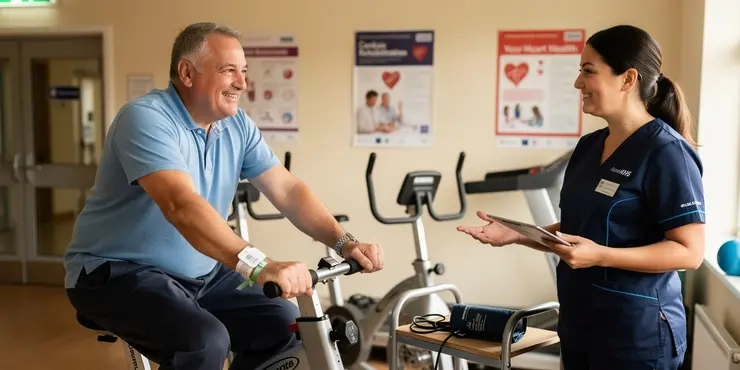
Cardiac Rehab
Relevance: 100%
-

What is Drugs Rehab?
Relevance: 51%
-
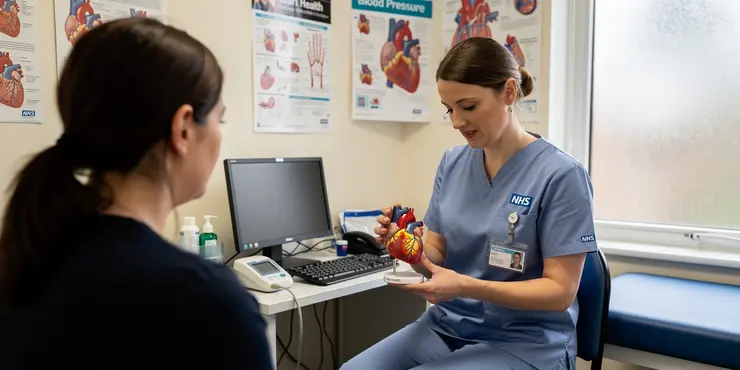
Cardiac Physiology Walkthrough
Relevance: 43%
-
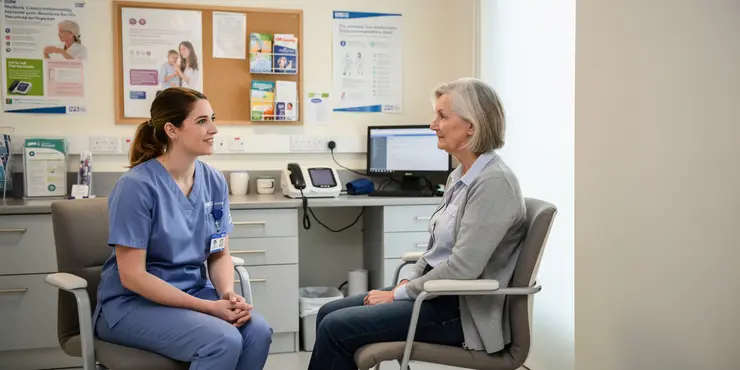
What is Alcohol Rehab?
Relevance: 38%
-

Are there any treatment programs for ketamine addiction?
Relevance: 17%
-
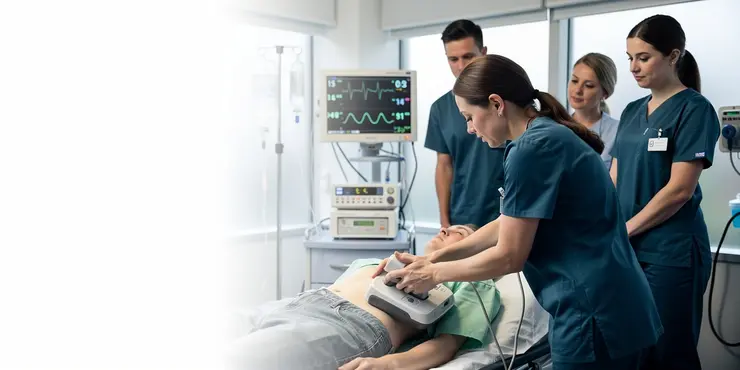
What is the role of a defibrillator in CPR?
Relevance: 17%
-
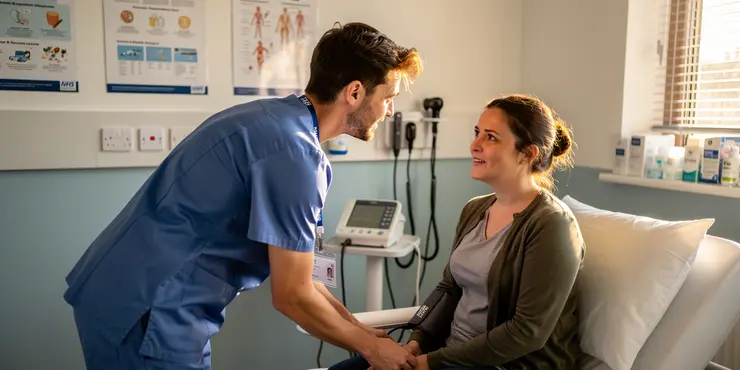
How effective are defibrillators?
Relevance: 16%
-
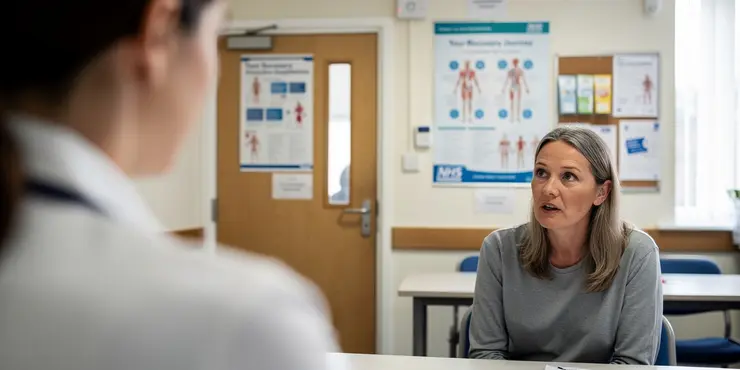
What are the long-term effects of a heart attack?
Relevance: 15%
-
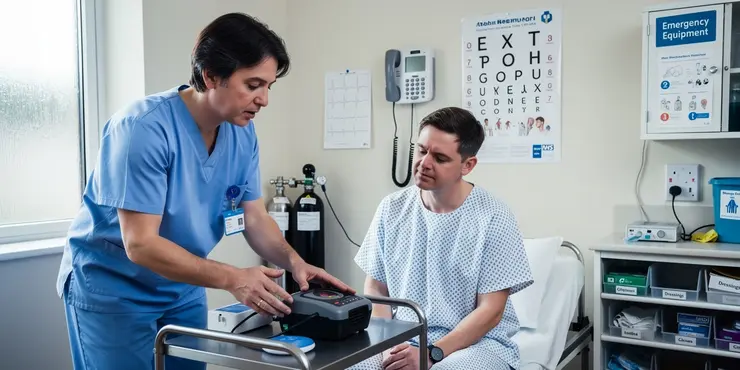
How do you know if a defibrillator is required?
Relevance: 15%
-
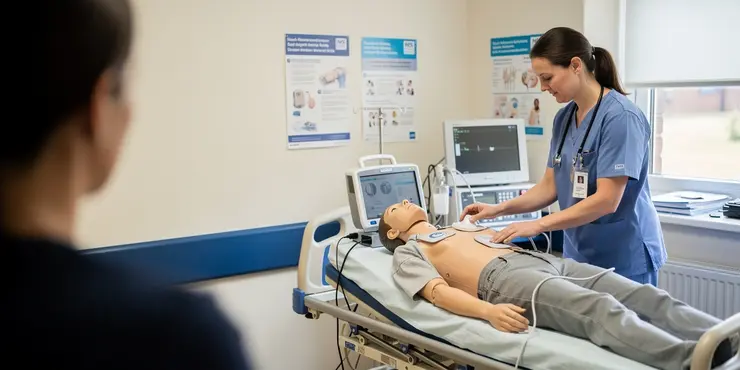
Can a defibrillator restart a stopped heart?
Relevance: 14%
-
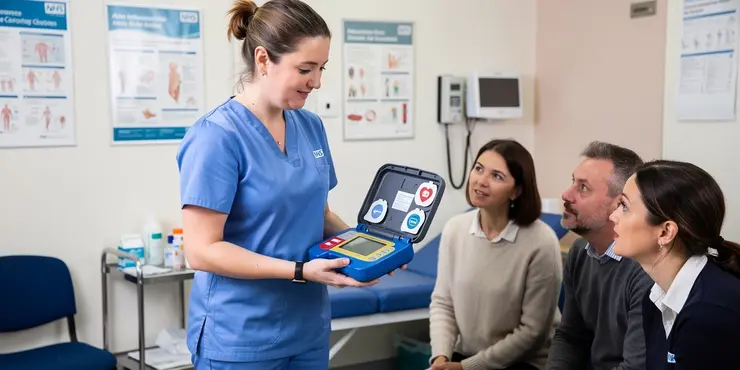
How does a defibrillator work?
Relevance: 12%
-
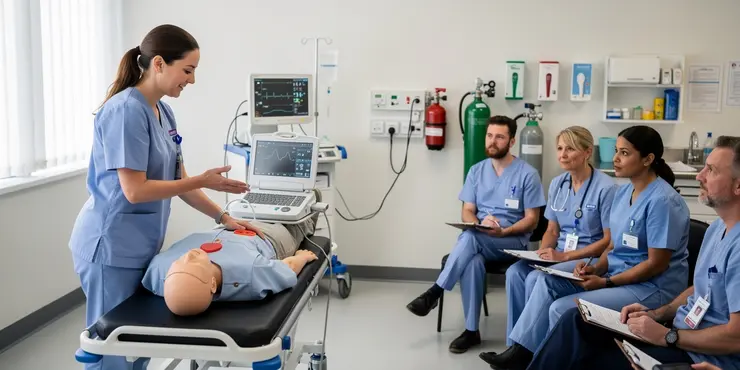
What is a Defibrallator?
Relevance: 12%
-
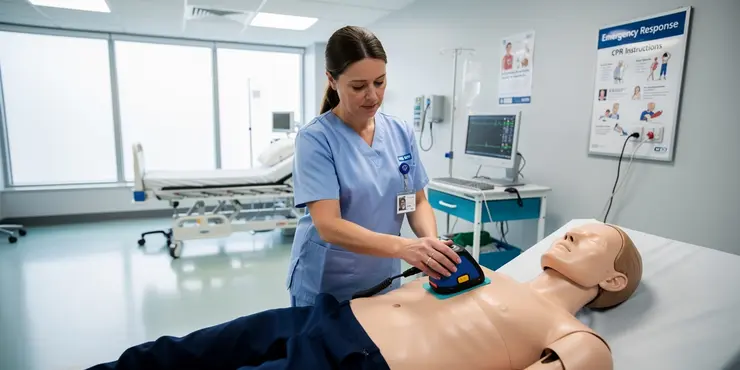
What is a defibrillator?
Relevance: 12%
-

What is the difference between an AED and an ICD?
Relevance: 12%
-
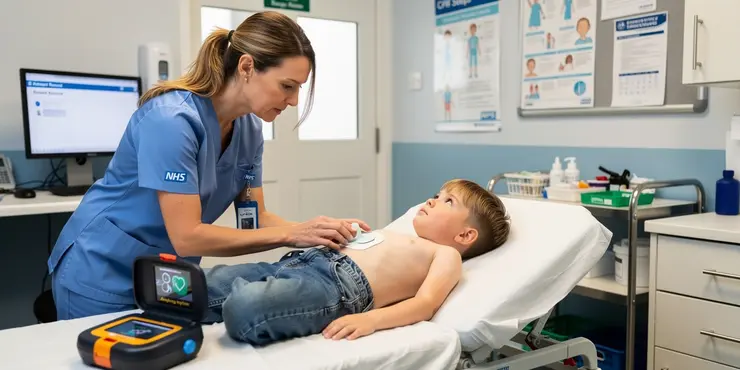
Can defibrillators be used on children?
Relevance: 12%
-
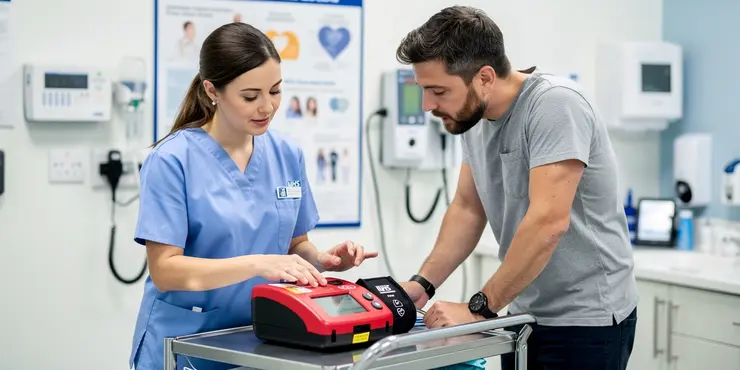
Is training required to use an AED?
Relevance: 12%
-
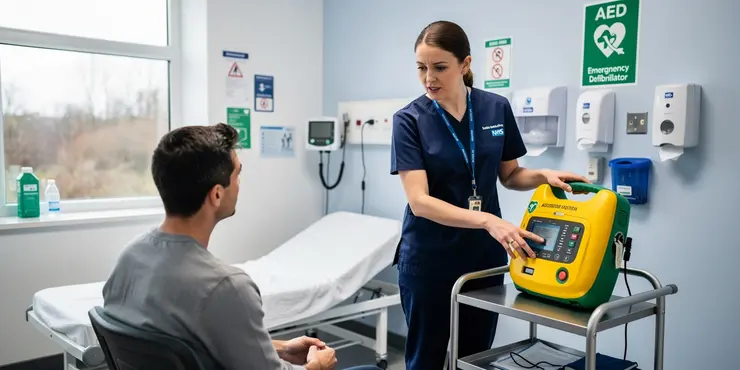
What is an AED?
Relevance: 12%
-
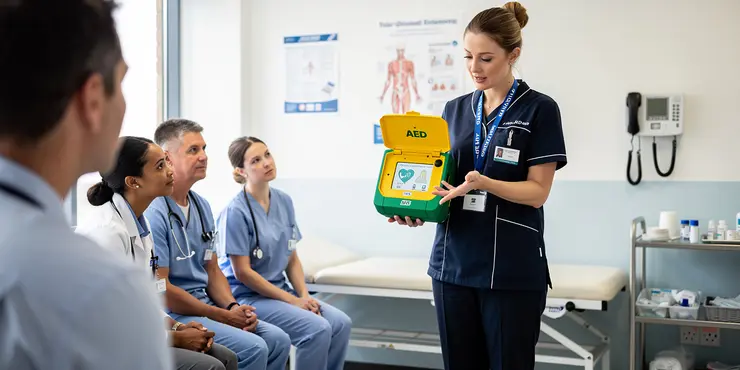
What are the different types of defibrillators?
Relevance: 12%
-
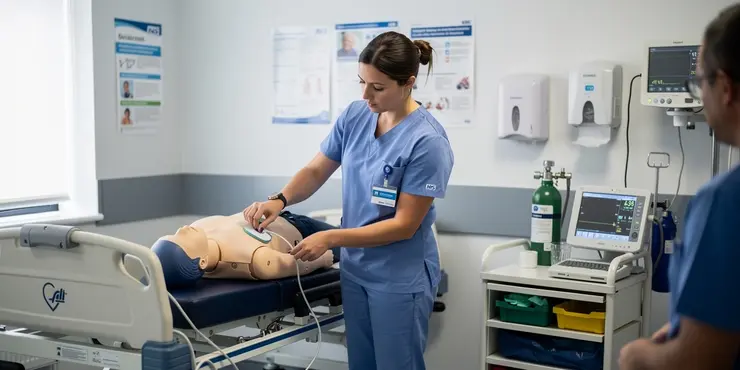
Who can use a defibrillator?
Relevance: 11%
-
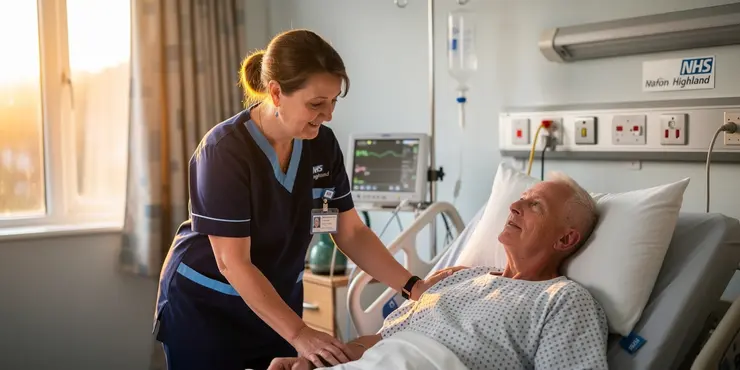
Heart attack care - Raigmore Hospital Inverness, NHS Highland
Relevance: 11%
-
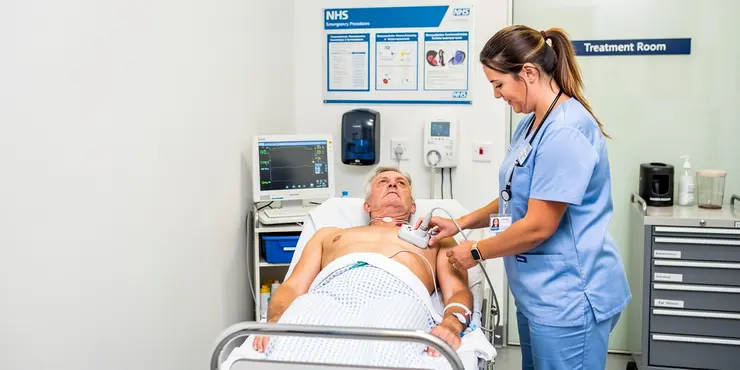
Can you use a defibrillator on a wet person?
Relevance: 11%
-
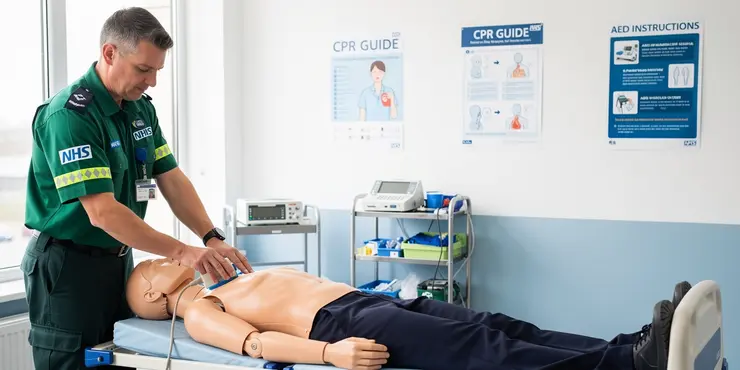
What should you do if a defibrillator is needed?
Relevance: 11%
-
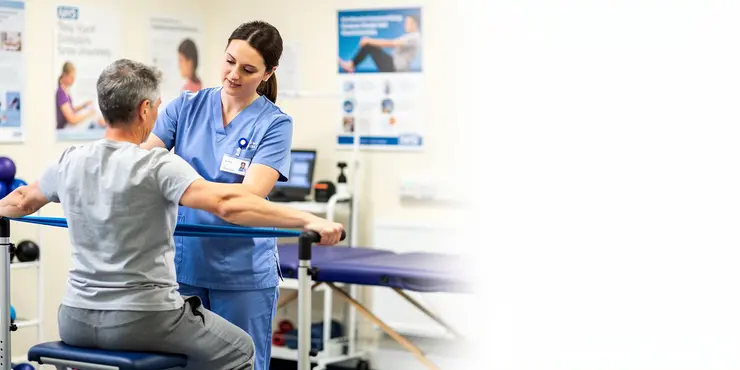
How does exercise impact heart failure?
Relevance: 10%
-
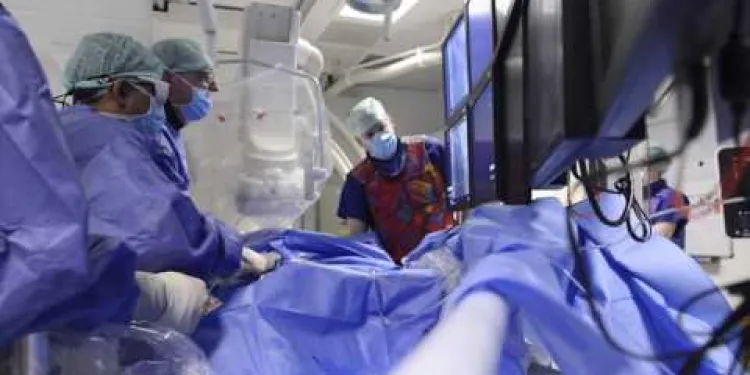
What is it like having a Transcutaneous Aortic Valve Implant (TAVI)?
Relevance: 10%
-
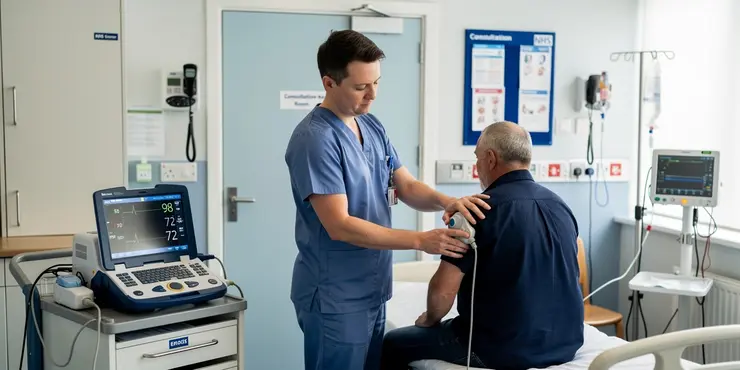
Do defibrillators have any side effects?
Relevance: 10%
-

Mycobacterium chimaera infection
Relevance: 10%
-
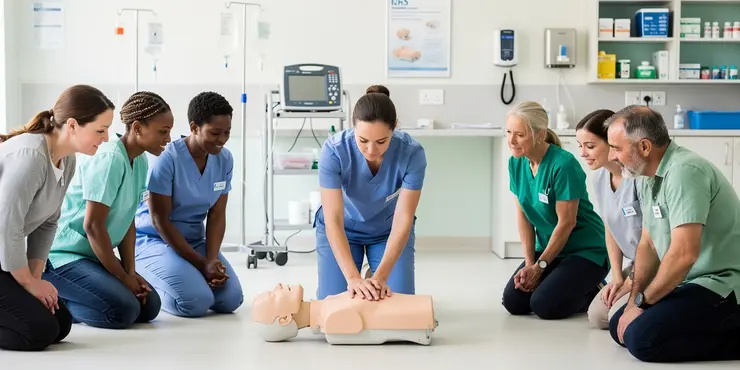
How important is it to learn CPR along with first aid?
Relevance: 10%
-
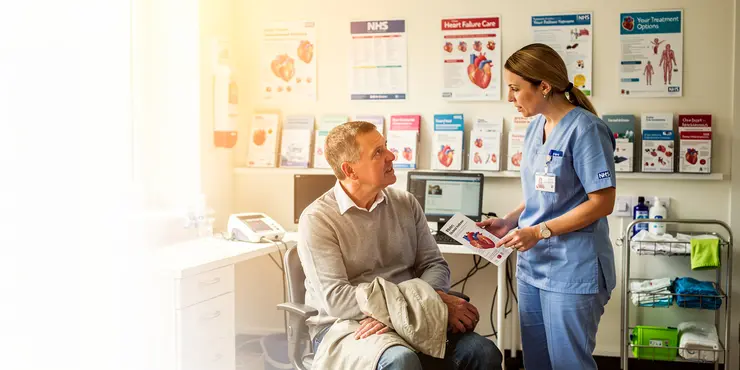
Can heart failure be cured?
Relevance: 10%
-
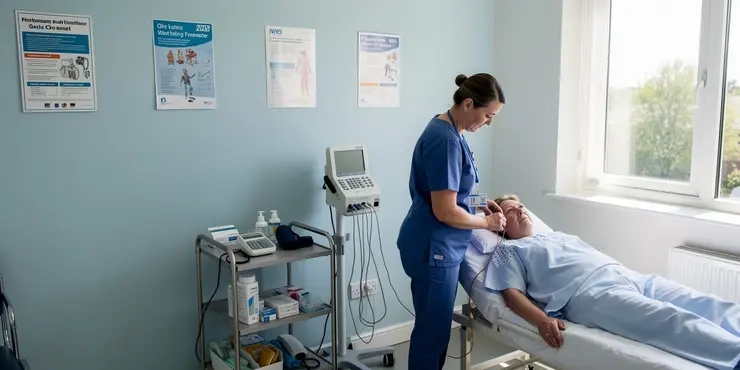
Electrocardiogram ECG
Relevance: 9%
-
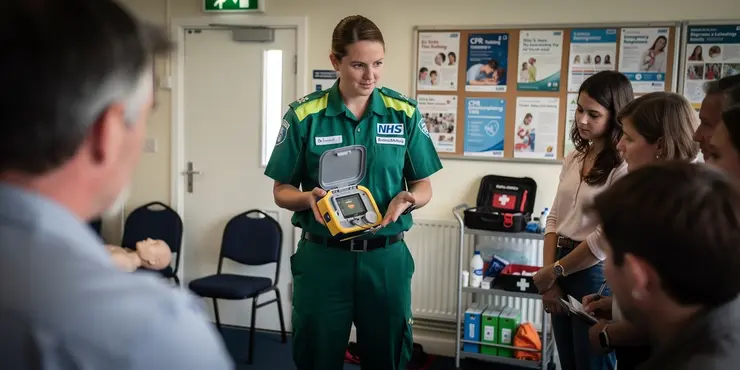
Why are defibrillators important?
Relevance: 8%
-

Where can AEDs typically be found?
Relevance: 8%
-
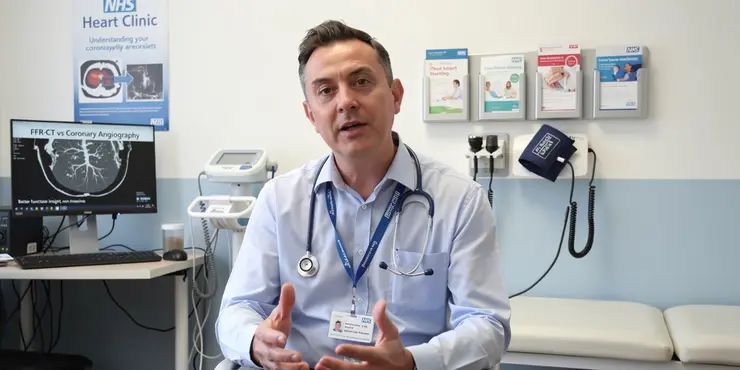
FFR-CT beat invasive conventional coronary angiography says a Cardiologist
Relevance: 7%
-
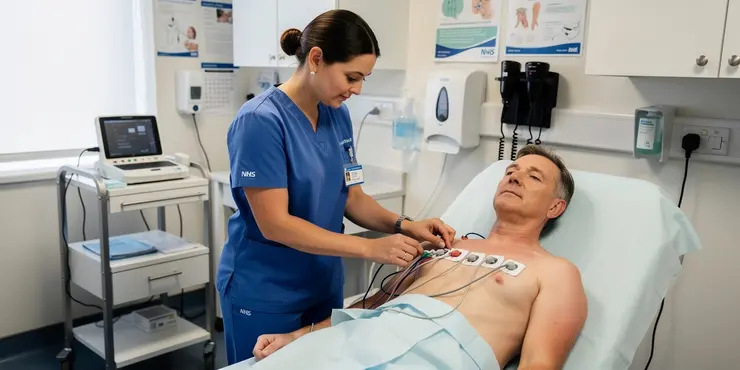
Performing a 12 lead ECG
Relevance: 7%
-

Will a heart bypass make me live longer?
Relevance: 7%
-
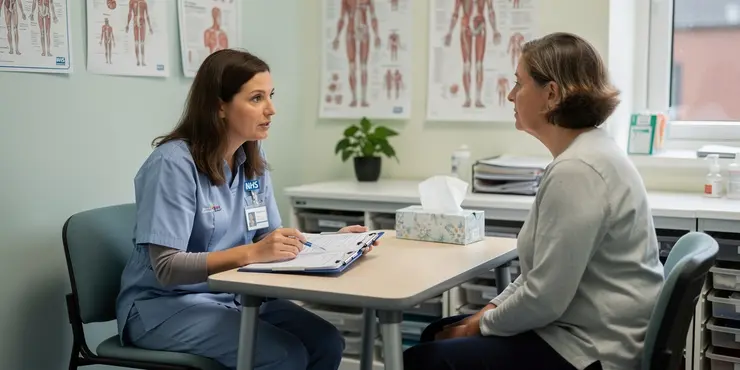
Can anxiety cause heart attack-like symptoms?
Relevance: 7%
-
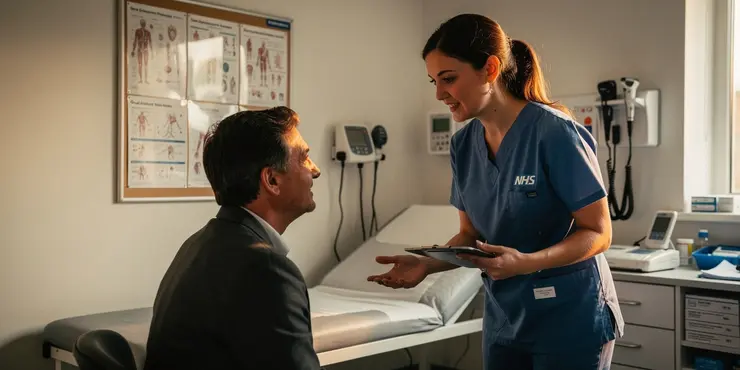
Can heart failure affect other organs?
Relevance: 7%
-

Heart Attack Stories | NHS
Relevance: 7%
-
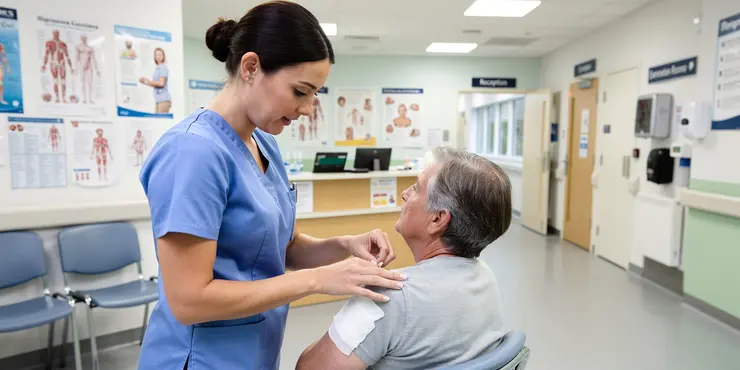
Can first aid skills help in daily life?
Relevance: 7%
-
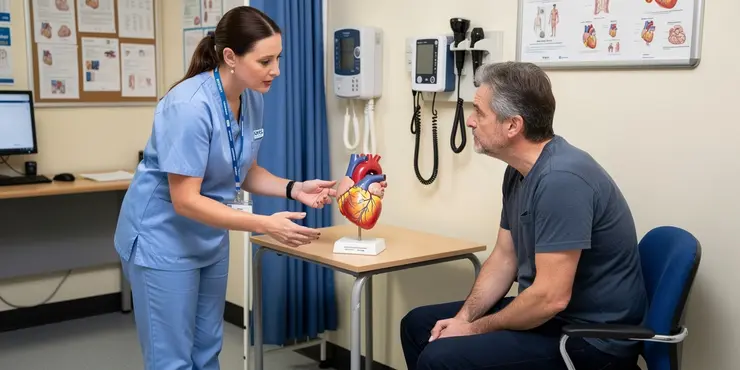
What is heart valve disease?
Relevance: 7%
-
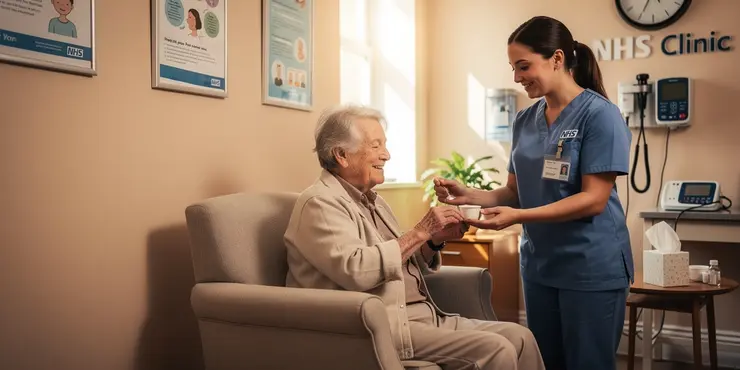
Medicines of the heart
Relevance: 6%
Understanding Cardiac Rehabilitation
What is Cardiac Rehabilitation?
Cardiac rehabilitation, often referred to as cardiac rehab, is a medically supervised program designed to improve cardiovascular health for individuals who have experienced heart attacks, heart surgeries, or are at high risk for heart disease. This comprehensive program typically includes a combination of exercise training, education on heart-healthy living, and counseling to reduce stress and improve mental health.Why Cardiac Rehab is Important
In the United Kingdom, heart disease remains one of the leading causes of death. Cardiac rehabilitation plays a crucial role in helping patients recover and lead healthy lives post-heart attack or surgery. Research has shown that patients who participate in cardiac rehab have a lower risk of future heart problems, improved physical functioning, and better psychological well-being.The Components of Cardiac Rehabilitation
1. **Medical Evaluation:** Before beginning the program, patients undergo a thorough medical assessment to tailor the rehab plan to their specific needs. 2. **Supervised Exercise:** Patients engage in physical activities, including walking, cycling, and strength training, tailored to their fitness levels and medical condition. 3. **Education:** Patients learn about heart disease management, dietary recommendations, smoking cessation, and other lifestyle modifications. 4. **Counseling:** Psychological support to help address anxiety, depression, or stress that may accompany heart disease.Accessing Cardiac Rehab in the UK
The NHS provides cardiac rehabilitation services through hospitals, community centers, and even home-based programs. Patients typically begin cardiac rehab within a few weeks of discharge from the hospital. The program’s duration can vary but generally spans several weeks to a few months. To access these services, patients should speak to their GP or hospital specialist, who can make the necessary referrals.The Benefits of Completing Cardiac Rehab
Completing a cardiac rehab program has numerous benefits, including: - Increased physical fitness and strength - Reduced symptoms of heart disease, such as chest pain or shortness of breath - Lowered blood pressure and cholesterol levels - Enhanced emotional health and reduced risk of depression - Greater likelihood of returning to work and engaging in social activitiesConclusion
Cardiac rehabilitation is a vital component of recovery for individuals with heart conditions in the UK. By combining exercise, education, and support, cardiac rehab helps patients regain their health and improve their quality of life. If you or a loved one has a heart condition, talk to your healthcare provider about the benefits of enrolling in a cardiac rehabilitation program.Understanding Heart Health Programs
What is a Heart Health Program?
A heart health program is called cardiac rehab. It helps people who have had heart problems, like heart attacks or heart surgery, feel better. This program is run by doctors and nurses to help make your heart healthier. It usually has exercise, lessons on living healthy, and talking to someone about your feelings.Why Heart Health Programs are Important
In the UK, many people die from heart disease. Heart health programs help people get better after a heart attack or surgery. People who go to these programs have healthier hearts, feel better physically, and are happier.What is in a Heart Health Program?
1. **Health Check:** Before starting, doctors check your health to make a plan just for you. 2. **Exercise:** You will do exercises like walking or cycling that are safe for you. 3. **Learning:** You will learn about how to look after your heart, eat healthy foods, quit smoking, and other good habits. 4. **Support:** You can talk to someone if you feel worried, sad, or stressed about your heart problems.Joining a Heart Health Program in the UK
You can find heart health programs through the NHS at hospitals, community centers, or even at home. You usually start a few weeks after leaving the hospital. The program can last several weeks or months. To join, talk to your doctor, and they will help you sign up.Good Things About Finishing a Heart Health Program
Finishing the program can help you: - Get stronger and fitter - Have less chest pain and breathe easier - Lower your blood pressure and cholesterol - Feel happier and less worried - Go back to work and enjoy activities with friends and familyConclusion
A heart health program is very important for people with heart problems in the UK. It helps you get healthier and feel better by exercising, learning new things, and getting support. If you or someone you know has heart problems, ask your doctor how a heart health program can help you.Frequently Asked Questions
What is cardiac rehab?
Cardiac rehab is a programme of exercise, education, and support designed to help you recover after a heart attack, heart surgery, or other heart problems. It aims to improve your physical fitness and help you manage your condition more effectively.
Who can benefit from cardiac rehab?
Anyone who has had a heart attack, heart surgery, or other heart-related issues can benefit from cardiac rehab. It is particularly useful for people recovering from procedures like angioplasty or heart valve surgery.
Is cardiac rehab available on the NHS?
Yes, cardiac rehab is available on the NHS. Your healthcare provider can refer you to a local cardiac rehab programme.
What activities are involved in cardiac rehab?
Cardiac rehab typically includes exercise training, education on heart-healthy living, and counselling to reduce stress and improve mental health.
How long does a cardiac rehab programme last?
The length of a cardiac rehab programme can vary, but it typically lasts around 6 to 12 weeks, with sessions usually held a couple of times a week.
Do I need to get my doctor’s approval before starting cardiac rehab?
Yes, it is important to get your doctor's approval before starting a cardiac rehab programme to ensure it's safe and appropriate for your condition.
Can I continue working while attending cardiac rehab?
Many people are able to continue working while attending cardiac rehab. However, you may need to adjust your work schedule to fit in the sessions. Discuss with your employer and healthcare provider to make necessary arrangements.
What should I wear to a cardiac rehab session?
Wear comfortable, loose-fitting clothing and appropriate athletic shoes to cardiac rehab sessions. This will help you move freely and safely during exercises.
Will my family be involved in my cardiac rehab?
Family involvement is encouraged as it can provide additional support and motivation. Some programmes offer sessions specifically designed for family members to help them understand your condition and how they can assist in your recovery.
Is cardiac rehab covered by private health insurance?
Coverage for cardiac rehab varies by health insurance plan. If you have private health insurance, check with your provider to see what is covered.
What are the risks associated with cardiac rehab?
Cardiac rehab is generally safe, but there are some risks, such as the possibility of injury during exercise. Programmes are designed to minimise these risks and include continuous monitoring of your heart health. Always follow the guidance of the cardiac rehab team.
Can I do cardiac rehab at home?
In some cases, home-based cardiac rehab programmes are available, particularly for those who may have difficulty attending on-site sessions. Your healthcare team can provide guidance on how to safely perform exercises and monitor your progress at home.
Will I need to change my diet as part of cardiac rehab?
Yes, dietary changes are often recommended as part of cardiac rehab to help manage your condition. You may receive advice on healthy eating, reducing salt intake, and eating heart-friendly foods.
How can I maintain the benefits of cardiac rehab after the programme ends?
To maintain the benefits of cardiac rehab, continue with the exercise and lifestyle changes you learned during the programme. Regular physical activity, a heart-healthy diet, and ongoing stress management are key to long-term heart health.
What happens if I miss a cardiac rehab session?
If you miss a session, contact your cardiac rehab team to discuss how to make up for it. Consistency is important for recovery, so make efforts to attend all sessions whenever possible.
What is cardiac rehab?
Cardiac rehab is a plan to help your heart get stronger. If you had heart problems, this plan can help you feel better.
The plan includes:
- Exercises to make your heart healthy.
- Learning about good food to eat.
- Talking to people who can help you.
Tools to help:
- Exercise videos can show you what to do.
- A cookbook with simple, healthy meals.
- Support groups where you can talk about your feelings.
Heart rehab is a plan to help you get better after heart problems like a heart attack or heart surgery. It includes exercise, learning, and support. The goal is to make you stronger and help you take care of your heart better.
You can use tools like picture charts or apps with simple instructions to help you follow the plan. You can also ask a friend or family member to help you with your rehab activities.
Who can get help from heart rehab?
If you had a heart attack or surgery, cardiac rehab can help you. It's good for people who had treatments like angioplasty or heart valve surgery.
Can you get heart rehab on the NHS?
Yes, you can get help for your heart health through the NHS. Your doctor can help you join a local heart health program.
If you find reading hard, ask someone you trust to read it with you. You can also use tools that read the text aloud or change the text size on your device to see it better.
What do you do in heart rehab?
Heart rehab helps people get better after heart problems. Here are things you might do:
- Exercise: Moving your body to get stronger. This can be walking, biking, or simple exercises.
- Healthy eating: Learning to eat foods that are good for your heart, like fruits and veggies.
- Education: Learning more about your heart and how to take care of it.
- Talking with helpers: Meeting with doctors or nurses who can answer your questions.
- Emotional support: Talking to someone if you feel worried or sad about your heart problems.
Helpful tools:
- Use pictures and videos to learn more about heart health.
- Join a group where people share their experiences about heart rehab.
Heart rehab helps your heart get strong. It has three parts:
1. Exercise: This helps make your heart stronger.
2. Learning: You learn how to keep your heart healthy.
3. Talking: Talking to someone can help you feel happy and less stressed.
If reading is hard, you can try listening to audiobooks or using picture cards to understand better. Also, apps with simple words can help.
How long does a heart rehab program last?
A heart rehab program helps your heart get better after a heart problem. It usually lasts about 6 to 12 weeks. But it can be different for each person. Talk to your doctor to find out what’s best for you.
You can use pictures and videos to help understand more about heart rehab. Ask someone you trust to explain things if you need help.
A heart rehab program usually lasts 6 to 12 weeks. People go to sessions a few times each week.
Do I need to ask my doctor before starting heart exercise program?
Yes, ask your doctor if it is okay for you to start a heart exercise program. Your doctor will tell you if it is safe and right for you.
Here are some tips to help you:
- Talk to your doctor or nurse if you have questions.
- Use picture cards or videos to understand better.
- Bring a friend or family member to help remember the doctor's advice.
Can I work while I go to heart rehab?
Yes, you can work while you go to heart rehab. It is important to talk to your doctor first. They will help you know what is safe for you. You can also ask your boss about making things easier at work.
Here are some ideas to help you:
- Take breaks when you need them.
- Do gentle exercises at work if you can.
- Use a calendar to plan your rehab sessions around work.
If you have questions, ask your doctor or nurse.
Most people can keep working while going to heart rehab. But, you might need to change your work times to go to your rehab sessions. Talk to your boss and doctor to make it work.
What clothes do I need for a heart rehab session?
Wear clothes that are comfy and not too tight. Also, put on the right sports shoes when you go to heart rehab sessions. This helps you move easily and stay safe while you exercise.
Can my family help with my heart recovery program?
We think it's good for your family to help you. They can give you support and make you feel better. Some programs have special times for your family to learn about your health. They can find out how to help you get better.
Will my health insurance pay for heart rehab?
Check your health insurance. It might help pay for heart rehab. Heart rehab is exercise and classes to make your heart strong.
Ask your doctor or insurance company. They can tell you if you have help paying for heart rehab.
What your health insurance pays for heart rehab is different for each plan. If you have your own health insurance, ask them what they will pay for.
Are there any dangers with heart rehab?
Cardiac rehab is usually safe. But sometimes, you could hurt yourself when you exercise. To keep you safe, the program watches your heart closely. Always listen to the team helping you.
Can I do heart exercises at home?
Yes, you can do heart exercises at home.
It is important to talk to your doctor first. They will tell you what is safe.
You can use videos or phone apps to help you exercise.
Remember to go slow and listen to your body.
Sometimes, you can do heart rehab exercises at home. This is helpful if you find it hard to go to a rehab center. Your doctor or nurse will help you do the exercises safely at home. They will also help you check how well you are doing.
Do I need to eat different foods for my heart health program?
If you are doing exercises to help your heart get better, you might need to eat different foods. Eating healthy foods can help your heart and make you feel strong.
Here are some tips to help:
- Eat lots of fruits and vegetables. They are good for your heart.
- Try to eat less salty or fatty foods like chips and fried foods.
- Drink water instead of sugary drinks like soda.
- Ask someone who knows about food, like a nutritionist, for help if you are unsure.
Yes, doctors often suggest changing what you eat to help your heart get better. You might learn about eating healthy foods, using less salt, and choosing foods that are good for your heart.
How do I keep my heart healthy after my heart rehab program ends?
Keep your heart healthy by doing what you learned in cardiac rehab. Keep exercising and follow the new lifestyle changes. Exercise regularly, eat heart-healthy foods, and manage stress. These help keep your heart strong for a long time.
What if I miss a heart rehab class?
If you miss a heart rehab class, that is okay. Try to go to the next class. Heart rehab classes help you get better. They help your heart get stronger.
If you miss a class, you can ask someone to explain what you missed. You can also try using reminders on your phone, if that helps you remember your classes.
If you miss a class, talk to your heart rehab team. They can tell you what to do to catch up. Going to all your classes is really important to get better, so try your best to go every time you can.
Useful Links
This website offers general information and is not a substitute for professional advice.
Always seek guidance from qualified professionals.
If you have any medical concerns or need urgent help, contact a healthcare professional or emergency services immediately.
Some of this content was generated with AI assistance. We’ve done our best to keep it accurate, helpful, and human-friendly.
- Ergsy carfully checks the information in the videos we provide here.
- Videos shown by Youtube after a video has completed, have NOT been reviewed by ERGSY.
- To view, click the arrow in centre of video.
- Most of the videos you find here will have subtitles and/or closed captions available.
- You may need to turn these on, and choose your preferred language.
- Go to the video you'd like to watch.
- If closed captions (CC) are available, settings will be visible on the bottom right of the video player.
- To turn on Captions, click settings .
- To turn off Captions, click settings again.
More Items From Ergsy search
-

Cardiac Rehab
Relevance: 100%
-

What is Drugs Rehab?
Relevance: 51%
-

Cardiac Physiology Walkthrough
Relevance: 43%
-

What is Alcohol Rehab?
Relevance: 38%
-

Are there any treatment programs for ketamine addiction?
Relevance: 17%
-

What is the role of a defibrillator in CPR?
Relevance: 17%
-

How effective are defibrillators?
Relevance: 16%
-

What are the long-term effects of a heart attack?
Relevance: 15%
-

How do you know if a defibrillator is required?
Relevance: 15%
-

Can a defibrillator restart a stopped heart?
Relevance: 14%
-

How does a defibrillator work?
Relevance: 12%
-

What is a Defibrallator?
Relevance: 12%
-

What is a defibrillator?
Relevance: 12%
-

What is the difference between an AED and an ICD?
Relevance: 12%
-

Can defibrillators be used on children?
Relevance: 12%
-

Is training required to use an AED?
Relevance: 12%
-

What is an AED?
Relevance: 12%
-

What are the different types of defibrillators?
Relevance: 12%
-

Who can use a defibrillator?
Relevance: 11%
-

Heart attack care - Raigmore Hospital Inverness, NHS Highland
Relevance: 11%
-

Can you use a defibrillator on a wet person?
Relevance: 11%
-

What should you do if a defibrillator is needed?
Relevance: 11%
-

How does exercise impact heart failure?
Relevance: 10%
-

What is it like having a Transcutaneous Aortic Valve Implant (TAVI)?
Relevance: 10%
-

Do defibrillators have any side effects?
Relevance: 10%
-

Mycobacterium chimaera infection
Relevance: 10%
-

How important is it to learn CPR along with first aid?
Relevance: 10%
-

Can heart failure be cured?
Relevance: 10%
-

Electrocardiogram ECG
Relevance: 9%
-

Why are defibrillators important?
Relevance: 8%
-

Where can AEDs typically be found?
Relevance: 8%
-

FFR-CT beat invasive conventional coronary angiography says a Cardiologist
Relevance: 7%
-

Performing a 12 lead ECG
Relevance: 7%
-

Will a heart bypass make me live longer?
Relevance: 7%
-

Can anxiety cause heart attack-like symptoms?
Relevance: 7%
-

Can heart failure affect other organs?
Relevance: 7%
-

Heart Attack Stories | NHS
Relevance: 7%
-

Can first aid skills help in daily life?
Relevance: 7%
-

What is heart valve disease?
Relevance: 7%
-

Medicines of the heart
Relevance: 6%


